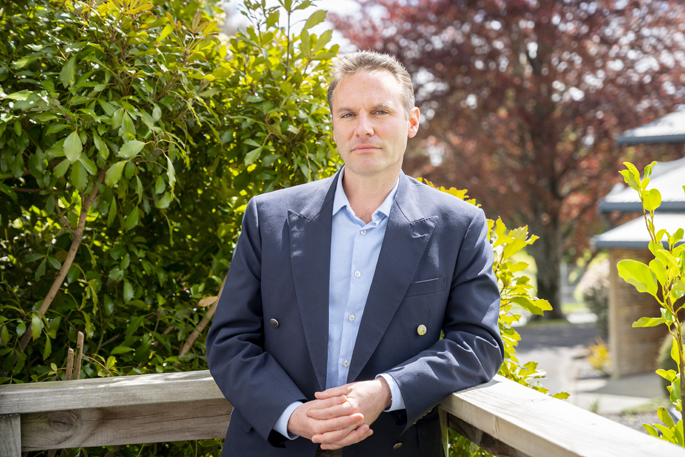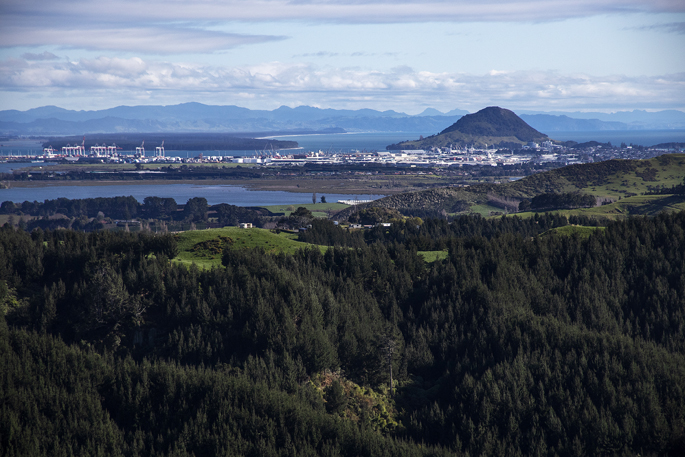The Government's Resource Management Act reforms promise to be cheaper, faster and better but two Bay of Plenty councils have expressed their concerns about how this will be achieved.
With the changes, more than 100 plans influencing consenting across different centres around the country will be reduced to just 15 regional plans.
These will be developed by local committees and guided by long-term strategies.
A national framework will also be created to ensure central government has a say in the overall direction.
Environmental protection will also now be focused on outcomes, "setting limits to maintain current environmental limits and targets where degradation needs to be restored".
Western Bay of Plenty mayor James Denyer said the reduction in plans 'should simplify things” but how 'local voice was maintained” needed to be 'worked out”.
The regional planning committees, who will create the Natural and Built Environment Plans, will have a minimum of six members that will be representatives of local hapū, iwi and Māori, and local government.
The committees must have a minimum of two Māori members and one chosen by central government, and each territorial authority and regional council can have a member.
Denyer said it was 'unclear” if the council representative would be an elected member or planning professional.
'How much voice that actually is, it's just a big unknown at the moment,” he said.
Tauranga City Council (TCC) also had concerns around the committees.
TCC general manager strategy, growth and governance Christine Jones said: 'The regionalisation of plan-making and the complex arrangements for the new Regional Planning Committees will make it more difficult for high growth cities such as Tauranga to resolve urban growth challenges effectively.”
Denyer and Jones said their councils had been working together on sub-regional spatial planning for the Western Bay of Plenty through SmartGrowth since it was formed in 2004.
Jones said TCC supported the requirement for all regions to prepare a spatial strategy.
'However, the delivery of spatial plans must be tied into infrastructure funding and financing agreements which are linked to local and central government funding mechanisms.”
 Western Bay of Plenty mayor James Denyer. Photo: Brydie Thompson/SunLive.
Western Bay of Plenty mayor James Denyer. Photo: Brydie Thompson/SunLive.
Denyer wanted to ensure the Western Bay of Plenty's views would be reflected in the regional plans.
'How that works in practice, is yet to be seen,” he said.
Under the reforms the Resource Management Act (RMA) will be replaced with two new pieces of legislation the Natural and Built Environment Act (NBA) and the Spatial Planning Act (SPA).
These were introduced to parliament in November and were expected to be passed into law before next year's election
The NBA will set out the rules for land use and resource allocation in a region with a National Planning Framework (NPF) highlighting national policy, desired outcomes, limits on environmental degradation and targets.
Jones said TCC acknowledged the need for reform and were supportive of central government objectives.
'However, based on our initial review of the Natural and Built Environment Bill and the Spatial Planning Bill, we remain concerned that the reforms will not achieve these objectives or address challenges with the current system.
'Although the intent is to shift from an effects-based approach to an outcomes-based approach, the outcomes listed in the Natural and Built Environment Bill are sometimes conflicting, with no prioritisation or hierarchy to guide decision makers.
'It is unclear at what point in the system that difficult decisions around trade-offs between conflicting outcomes will be made.”
Denyer said the shift from an effects based to outcomes based approach should 'hopefully better protect the environment”.
'But there's always a tension between development and protecting environment and that that's never going to go away no matter what legislation there is.
'Hopefully they will have more joined up thinking within the National Planning Framework.”
In his speech announcing the changes Environment Minister David Parker described the current system as 'broken”.
'It takes too long, costs too much and has not adequately provided for development nor protected the environment,” he said.
'It needs to be faster, cheaper and better. We [the Government] are doing that, delivering a system that provides greater certainty and simplicity.”
He also spoke about community voice within the changes.
'Local communities will continue to have a strong voice including through Statements of Community Outcomes. There is flexibility for regions to determine the regional planning committee's make-up, with committees comprising of representatives from local government and Māori groups in the region.”
The Minister was approached about the councils' specific concerns but did not respond in time for deadline.
Public Interest Journalism funded through NZ On Air




2 comments
Right
Posted on 11-12-2022 07:56 | By Kancho
The councils are right to be concerned and suspicious. This government is set at undermining local government the evidence already there. Tauranga has no say and ruled over by government appointment. The government has removed water from councils and any control of those assets. This is a direct assault on democratic processes. They have built huge increases and levels of bureaucracy that takes centralised control. They need to be removed by democractic at the next election.
We will have no say
Posted on 11-12-2022 11:01 | By an_alias
We will consult and have a working group but regardless of what you say we will appoint a groupie based on our needs. You can say all you want says govt. We must pay those who support us.
Leave a Comment
You must be logged in to make a comment.